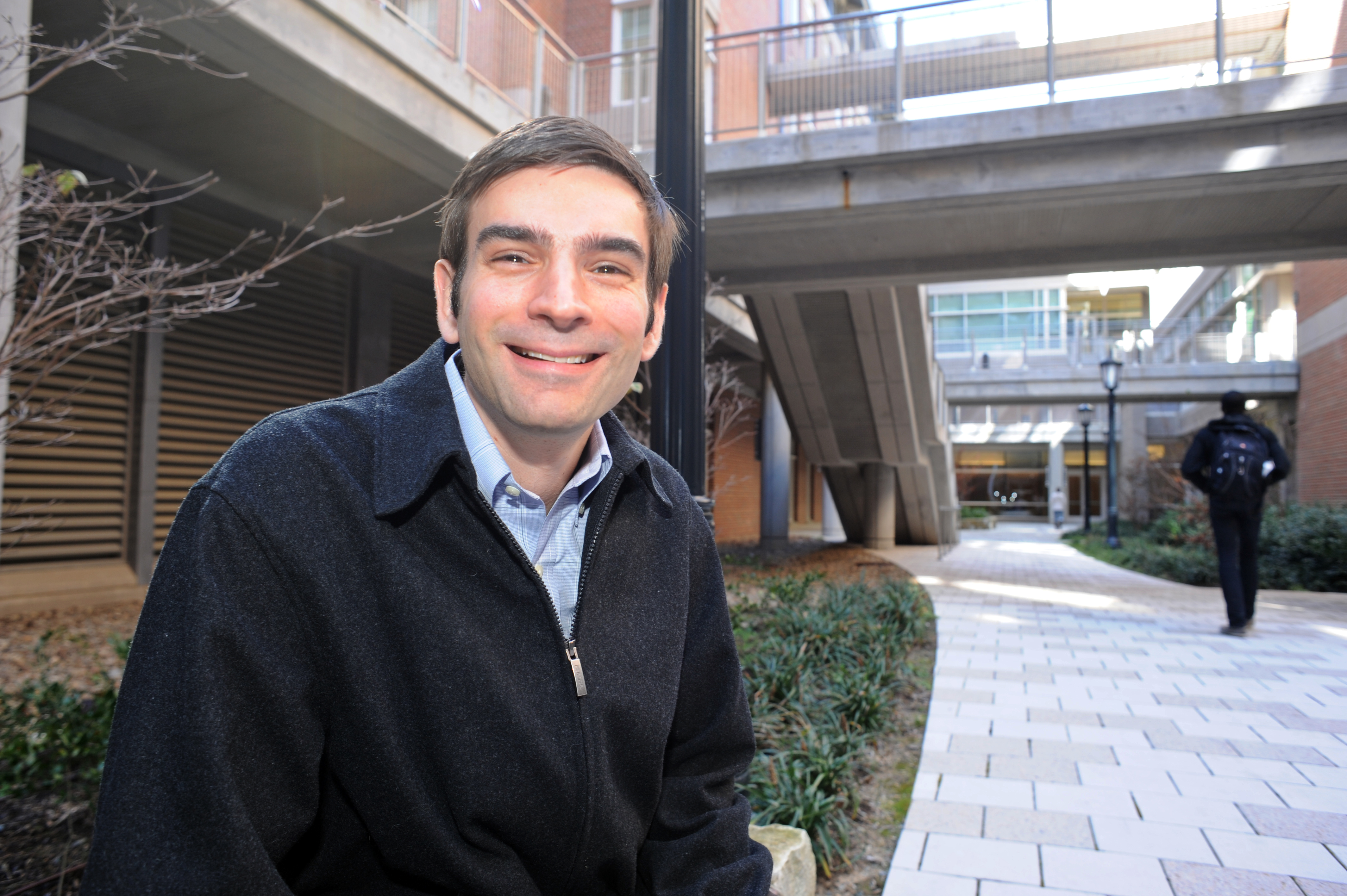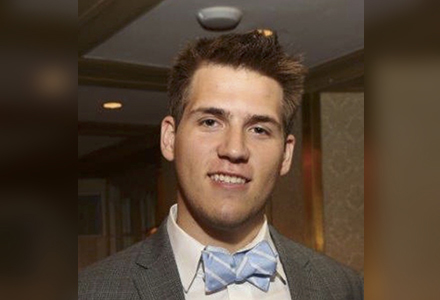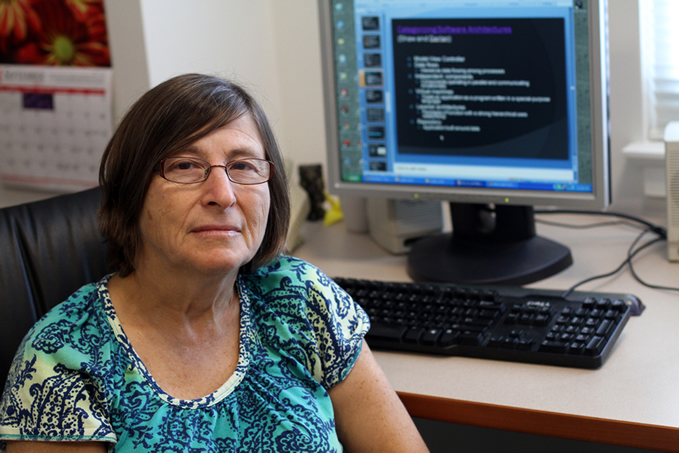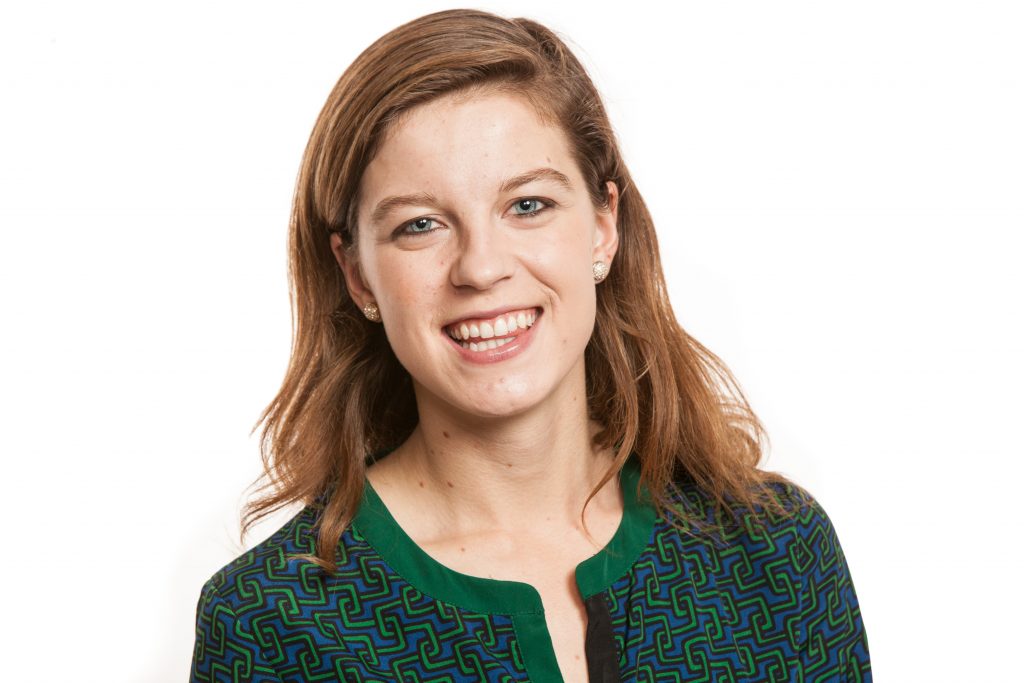
Alexander Miller calls it a classic chemistry tale. While in the lab as a post-doctoral student at the University of Washington, trying to convert biomass to methanol, he stumbled upon a surprising reaction.
He found methanol, a promising transportation fuel, but not in the way he intended. Instead of coming from biomass, the methanol formed when a special catalyst interacted with an unexpected middleman called formic acid.
Converting formic acid to methanol directly is difficult, but if the transformation could be perfected, it could have a big impact on renewable energy. Carbon dioxide could be converted to formic acid, which could then be converted to methanol. Formic acid can also be made from other carbon sources, not just carbon dioxide, giving some flexibility to how we might one day efficiently create more sustainable liquid fuels.
After the discovery, he scrambled to understand the reaction mechanism – how the process works at a molecular level – to begin addressing this energy issue.
“In my field, we focus on mechanisms and how to define new ones, and no one had seen this reaction from formic acid to methanol before,” Miller said. “It was hinted at 100 years ago and no one had seen it since, but we did, and it was by accident.”
This winter Miller, assistant professor of chemistry, was named to Forbes’ “30 under 30” list in the energy category. The annual list chooses the brightest stars in 15 categories, ranging from energy to Hollywood to social entrepreneurs.
Miller was selected for his research on novel catalysts – like the one he found that converts formic acid to methanol – for use in the sustainable manufacture of next-generation fuels. In addition to converting natural gas and biomass – biological materials, like trees or other plant materials – into liquid fuels, Miller is looking for ways to harness and store solar energy as fuel.
“Being on the Forbes list sets the bar high,” he said. “I’m excited to chase that.”
Starting at the molecular level
Miller’s office is on the fourth floor of Kenan Labs, down the hall from the state-of-the-art laboratory, currently under renovation, where his research group will try first to find solutions to the energy crisis at the molecular level.
“A lot of what we talk about in regard to innovation is about translating from research to a start-up or a collaboration with industry,” he said, “but it all starts with the chemistry: Before there can be any of that, you have to have something new in the lab.”
Miller said the biggest science experiment in energy is the one we’re currently conducting in the real world. There are predictions, simulations and good guesses about how our planet is going to react to elevated carbon dioxide and warmer temperatures, but no consensus on what will actually happen.
“Using fewer fossil fuels and lowering emissions can mitigate that for sure, but I’d rather not wait to find out how that experiment ends,” he said.
Miller said chemistry is just a part of the picture. “We’re one small step in a longer journey. This is also an engineering problem, and a physics problem, but this has invigorated my field of inorganic chemistry.”
Solving the world’s big problems through innovation has been a project of another award-winning chemist on Carolina’s campus, Chancellor Holden Thorp. In fact, Miller now sits in Thorp’s old office overlooking the southwest part of campus.
“He leaves big shoes to fill,” Miller said. “It’s nice being at a school where different kinds of innovation are valued, and where people keep pushing you to bring your ideas to fruition.”
‘Research hooked me’
At the University of Chicago, Miller wavered between interests in philosophy and chemistry. With one grandfather a surgeon and the other a writer, he felt he was born to find a field where he’d use his hands as well as a love of language. He found it in chemistry, specifically in research.
“I liked the field, and I did well in classes, but it was the research that hooked me,” he said. “It was fun, and it didn’t feel like homework to me. I had a terrific mentor who let me run my own experiments.”
Through undergraduate research on the complexes of the element nickel, Miller, for the first time, created a new molecule. He called it a “sneaky surprise.”
“You’re in the lab doing the things you’ve been taught to do, the things you’ve done over and over, and all of a sudden it hits you that you’ve done something new. When you realize you’ve made a new molecule that no one has ever made before, that’s a concrete frontier of science,” he said.
This summer he’ll begin putting his approach to chemistry to the test as he leads a group of researchers – a mix of graduate students, post-doctoral fellows and undergraduates – in the steps of solving the problem of sustainable energy.
He said he looks forward to helping his students find something they love.
“What you want to see is the driving force of the research transfer from the teacher to the students, so that, a few years later, they’re surprising you with new ideas, with the things you told them wouldn’t work and they tried anyway,” Miller said.
From lab to reality
Like Thorp, Miller got his Ph.D. from the California Institute of Technology. After a post-doc year in Seattle, he came to Carolina last July with his wife, Jillian Dempsey, who is also a new professor in the chemistry department.
He has discovered a new reaction to generate a liquid fuel, but determining which material will ultimately be the best catalyst, he said, is much harder. Well-defined molecules don’t usually make the best catalysts. Industrial catalysts need to be inexpensive, heat-resistant and packed into columns – and they are the hardest to study.
“It gets more exciting from here,” he said. “Now that we know to look for this reaction, we know we can try to improve it. So where will it go? Will the people who are studying these difficult materials start pushing for this reaction?”
It’s a big leap to go from what he does in his lab to the large-scale adoption of a certain technique or the fruition of a particular idea.
“But you can’t do it without first going down to the molecular level and understanding how it works,” he said. “You’ll never make it work better otherwise.”
The energy game in America has changed quickly, and Miller is optimistic that there is an affordable and more efficient alternative way forward. He just has to find it, and he has come to Carolina with a lot of hope.
“That’s what I do: I work on the biggest problems,” he said.




